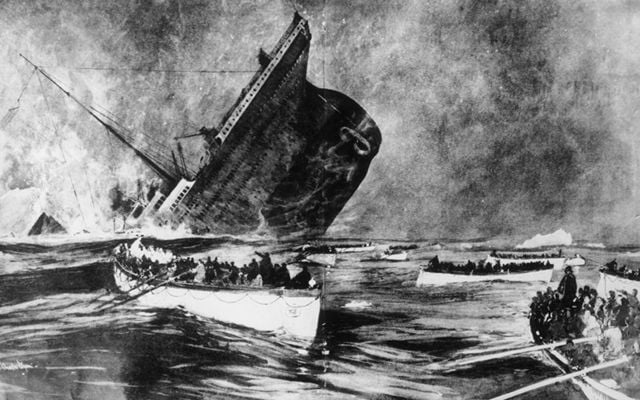On April 15, 1912, the RMS Titanic struck an iceberg and plunged to its watery grave killing 1,517 people.
Strangely, it has been reported that considering the impossible events unfolding around them, the passengers on the Titanic remained relatively calm and behaved in an orderly fashion. This seems to be because they had 2.5 hours to wait.
According to reports, women and children climbed into lifeboats, the cellist and violinist from the band played on, and men, many of whom would soon be dead, stood on deck smoking cigars.
Experts, including David Savage from Queensland University, have been puzzled by this. Generally, it is believed that people tend to act in their own best interest but in the case of the passengers on board the Titanic this was not the case.
Speaking to National Public Radio (NPR) Savage said, “There was no pushing and shoving."
He said it was "very, very orderly behavior."
Savage compared the behavior of the passengers on the Titanic to that of the passengers of the Lusitania, another British ship that sank in 1915. It was torpedoed by a German U-boat.
There were many similarities between the two ships: they were both luxury liners with a similar number of passengers, as well as a similar number of survivors.
The difference between the passengers on these ships was that the people on the Lusitania panicked.
Savage believes that the difference can be attributed to time. The Lusitania sank in less than 20 minutes while the Titanic took 2.5 hours.
He said, “If you've got an event that lasts two-and-a-half hours, social order will take over and everybody will behave in a social manner. If you're going down in under 17 minutes, basically it's instinctual.”
In the case of the Titanic, social order ruled. Women and children boarded the lifeboats first.
However, on the Lusitania, the survivors were largely those who were strong enough swimmers to get to the lifeboats. On the Lusitania, people acted on instinct.
Savage explained that social conventions on the Titanic trumped natural self-interest. On the Titanic, these social conventions had time to set in.
One man who survived the wreck had reluctantly taken a seat on a lifeboat with an empty seat. The people surrounding him told him to take the seat. However, when he returned home “he was viewed as being a coward and he was derided by the press and everybody in the country for the rest of his life.”




Comments